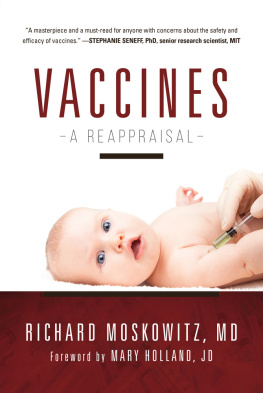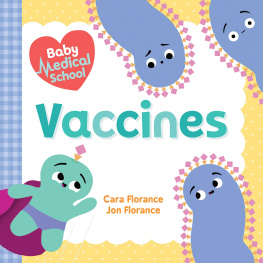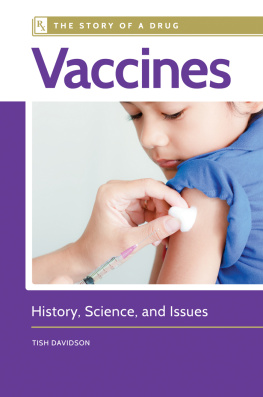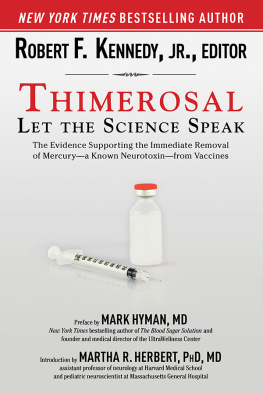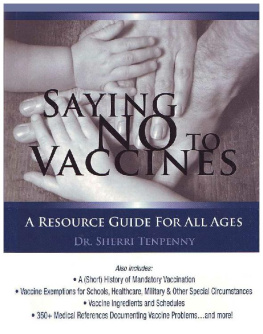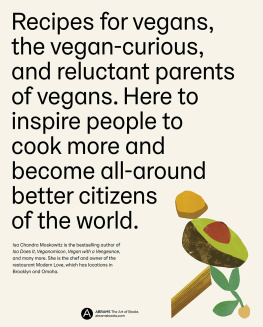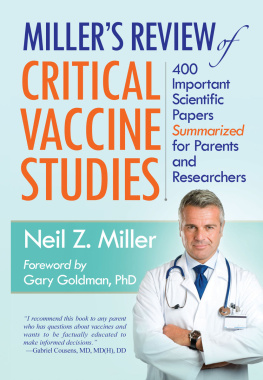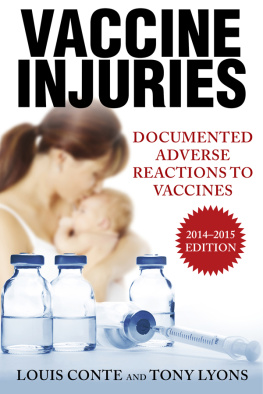Copyright 2017 by Richard Moskowitz
All rights reserved. No part of this book may be reproduced in any manner without the express written consent of the publisher, except in the case of brief excerpts in critical reviews or articles. All inquiries should be addressed to Skyhorse Publishing, 307 West 36th Street, 11th Floor, New York, NY 10018.
Skyhorse Publishing books may be purchased in bulk at special discounts for sales promotion, corporate gifts, fund-raising, or educational purposes. Special editions can also be created to specifications. For details, contact the Special Sales Department, Skyhorse Publishing, 307 West 36th Street, 11th Floor, New York, NY 10018 or .
Skyhorse and Skyhorse Publishing are registered trademarks of Skyhorse Publishing, Inc., a Delaware corporation.
Visit our website at www.skyhorsepublishing.com.
10 9 8 7 6 5 4 3 2 1
Library of Congress Cataloging-in-Publication Data is available on file.
Cover design by Rain Saukas
Cover photograph: iStockphoto
Print ISBN: 978-1-5107-2256-9
Ebook ISBN: 978-1-5107-2258-3
Printed in the United States of America
DEDICATION
To the pursuit of real science, conducted in an objective and disinterested manner, rather than simply to sell a product, or advertise conclusions already determined in advance, as described by the late Richard Feynman, professor of Theoretical Physics at Caltech and winner of the Nobel Prize for Physics in 1965:
Science creates a power through its knowledge, a power to do things. It does not give instructions as to how to use it for good rather than evil. Scientists statements are approximate, never absolutely certain. We must leave room for doubt, or there is no progress and no learning. There is no learning without having to pose a question, and a question requires doubt. Before you begin an experiment, you must not know the answer. If you already know the answer, there is no need to gather any evidence; and to judge the evidence, you must take all of it, not just the parts you like. Thats a responsibility that scientists feel toward each other, a kind of morality.
Science has had long experience with ignorance, doubt, and uncertainty. Our freedom to doubt was born of a struggle against authority, a very deep and powerful struggle. Permit us to question, to doubt, to not be sure: thats all we ask. We must not forget the importance of this struggle, or we may lose what we have gained. Here lies a responsibility to society, to pass on what we have learned, and to leave future scientists a free hand. We make a grave error if we say we have the answers now, suppressing all discussion and criticism, and thus doom mankind to be chained to authority, to the limits of our present understanding, as has been done so often before!
The Pleasure of Finding Things Out
CONTENTS

FOREWORD
A ll over the world, governments, medical institutions, and manufacturers are trying to persuade or compel people to vaccinate themselves and their children from cradle to grave. The modern world prizes vaccines as the signal triumph of medicine over disease, its quintessential achievement.
But does this paradigm make sense? Should we accept it? Should we permit governments to go beyond recommending vaccines for infants to mandating them for everyone? Is the science settled as firmly and beyond doubt as we have been led to believe? In his Vaccines: A Reappraisal, Richard Moskowitz, MD, asks these questions in a systematic way, and provides critical thinking and careful scholarship to help us try to answer them, as well as highlighting important scientific work that has been and still remains to be done.
Dr. Moskowitz is a practicing physician with fifty years of experience, and the book he offers is clearly written and easily accessible for readers with or without a medical background. In addition to lessons drawn from his own practice and that of like-minded colleagues, it provides an extensive review of
1. official pronouncements from industry and various government agencies;
2. epidemiological and basic-science research from the scientific literature;
3. tragic stories of real people and damaged lives; and
4. news stories bearing on all of the above.
There are many books critical of vaccines on the market today. What is unique about this one is its comprehensive analysis of the subject as a whole, from the much-loved but sadly vanishing perspective of an old-time family doctor.
Dr. Moskowitz sees our present vaccine policy as a vast, costly, and dangerous experiment that is out of control, obscenely profitable, and badly in need of independent regulation. He catalogues the risks of each individual vaccine, as well as those of the vaccination process per se. He explains how the industrys in-house safety trials, and the governments Vaccine Adverse Event Reporting System (VAERS) and National Vaccine Injury Compensation Program (VICP), systematically ignore and underreport important classes of injuries caused by vaccines, so that the true extent of their burden on the medical system remains hidden and to that extent unknowable.
As a kind of bottom line, he emphasizes the basic right of every patient to free and informed consent, which dovetails closely with my own work as a human rights lawyer, and undoubtedly explains why he sought me out to write this foreword. To put vaccines in their proper place, he advocates nothing more radical than simply holding them to the same standards that all other prescription drugs must abide by, namely,
1. honoring every individuals right to refuse them;
2. requiring them to undergo the same degree of rigorous testing;
3. providing complete information about their adverse effects;
4. extending the definition of these beyond the incredibly narrow restrictions in use today; and
5. restoring the legal liability of manufacturers for damages caused by vaccines that remains in force for every other drug.
Like my own, Dr. Moskowitzs opposition to mandatory vaccination adheres closely to the letter and the spirit of the 2005 Universal Declaration on Bioethics and Human Rights, which affirms that, apart from a public health emergency, the interests of science and society must not be allowed to override the right of all people to make medical decisions for themselves and their children.
Our current vaccine policy shockingly deviates from that fundamental principle, which a traumatized world adopted as a result of the atrocious crimes against humanity committed in World War II. Both the Nuremburg Code of 1945 and the 2005 Universal Declaration that supplemented it were signed by more than 190 countries, including the United States, and have established unequivocally that medical care must not be subject to governmental coercion, except in the rarest and most extreme circumstances.
In 2015, a small measles outbreak among visitors to Disneyland prompted the state of California to enact a law prohibiting infants and children from attending any school or preschool, whether public or private, unless they are fully compliant with the states vaccine mandates, a draconian measure that abandons sensible public health practice as well as basic human rights. Since then, many other states and even the federal government are considering similar laws, merely because a small but growing minority of parents are continuing to question and refuse some vaccines for their children.
Passionately committed to safeguarding these rights, Dr. Moskowitz points out that by transgressing this core principle of medical ethics and international law, coercive mandates also erode the mutual trust that the doctor-patient relationship and ultimately the art and science of medicine are built upon.

